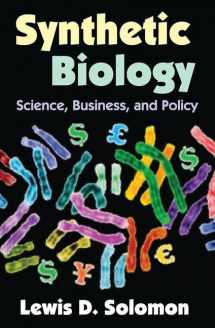
Synthetic Biology: Science, Business, and Policy
Book details
Summary
Description
For nearly forty years, using recombinant DNA tools, researchers, and then businesses, have genetically engineered organisms by transferring naturally occurring genes from one organism into another. Doing so modifies the genetic code of living cells, imparting new traits and achieving desired results; this is done in the production of proteins, pharmaceuticals, and seeds. Synthetic biology, argues Solomon, could free scientists from the need to find natural genes to make such desired modifications.
Synthetic biology permits more complex and sophisticated bioengineering than what can be achieved through previous genetic modification techniques. Drawing on non-biological scientific and engineering disciplines, including information technology and nanotechnology, synthetic biology strives to rearrange an organism’s genes on a far wider scale by rewriting its genetic code, the chemical instructions need to design, assemble, and operate a species. By allowing the writing of artificial genetic codes, synthetic biology can transform existing industries and spawn new ones, creating new products as well as radically reshaping existing items.
Arguing for self-regulation by the scientific and business communities, Lewis D. Solomon recommends a policy framework that would guard against governmental overregulation, which could create a barrier to innovation. Although synthetic biotechnology holds considerable social and economic potential, absent a nurturing regulatory climate, it may prove difficult to translate research discoveries into commercially viable applications.


We would LOVE it if you could help us and other readers by reviewing the book
Book review



